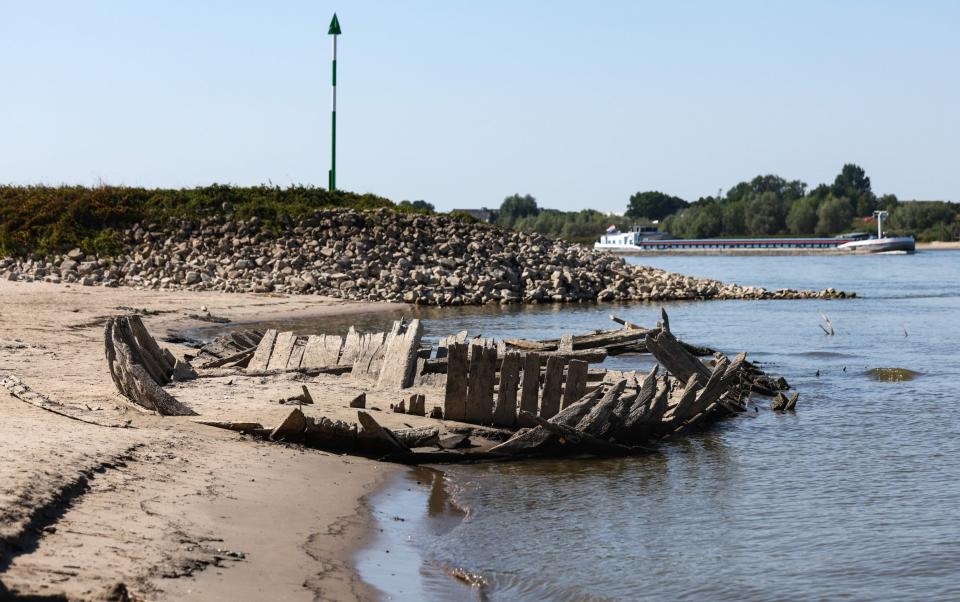‘If you can see me, weep’: Drought-hit River Elbe reveals ‘hunger stones’ from 1616

Severe drought has caused water levels of the river Elbe to drop, exposing centuries-old “hunger stones”.
One stone now visible in Decin, where the Elbe flows from the Czech Republic into Germany, is carved with a warning from 1616 that reads: “If you see me, weep.”
The stones, embedded into the banks to mark water levels during famines, have been exposed as drought continues to afflict Europe.
Other stones, which were common in German settlements from the 16th to the 19th centuries, were inscribed with similarly macabre warnings of falling water levels. Water levels in the Rhine reached record lows on Monday.

Germany’s Waterways and Shipping Administration (WSV) measured just 12.5 inches of water at a key reference point in Kaub, a bottleneck for shipping on the river, which services Germany’s industrial heartlands.
At least 15.7 inches of water is needed for commercial shipping to be viable, and the WSV has forecast that water levels could fall further this week.
Contargo, a German shipping company, on Friday warned that its barges, which travel the length of the Rhine and its tributaries, would “not be able to sail without danger”.
Watch: European parks dry out amid heatwaves and drought
In Emmerich, where the Rhine flows across the Dutch border, 1.5 inches of water was measured at the reference point – a record low, beating the 2.7 inches recorded in 2018.
Though the measurements at the Emmerich reference point – which is not the deepest part of the river – could drop to zero this week, the river’s commercial shipping lane remains navigable.
With more hot weather looming, there are fears the situation could worsen. “As long as it doesn’t rain, things will continue to go downhill,” a spokesman for the Rhine Water and Shipping Authority told the broadcaster Welt.
Economists estimate the disruption to Rhine shipping could knock as much as half a percentage point off overall economic growth in Europe’s largest economy this year.
As Germany looks to coal to reduce its dependence on Russian gas, the Rhine has become even more critical.
With boats already unable to take on enough coal due to low water levels, energy giant Uniper has warned of output cuts at two of its plants that together provide four per cent of Germany's coal-generated electricity.

 Yahoo News
Yahoo News 
